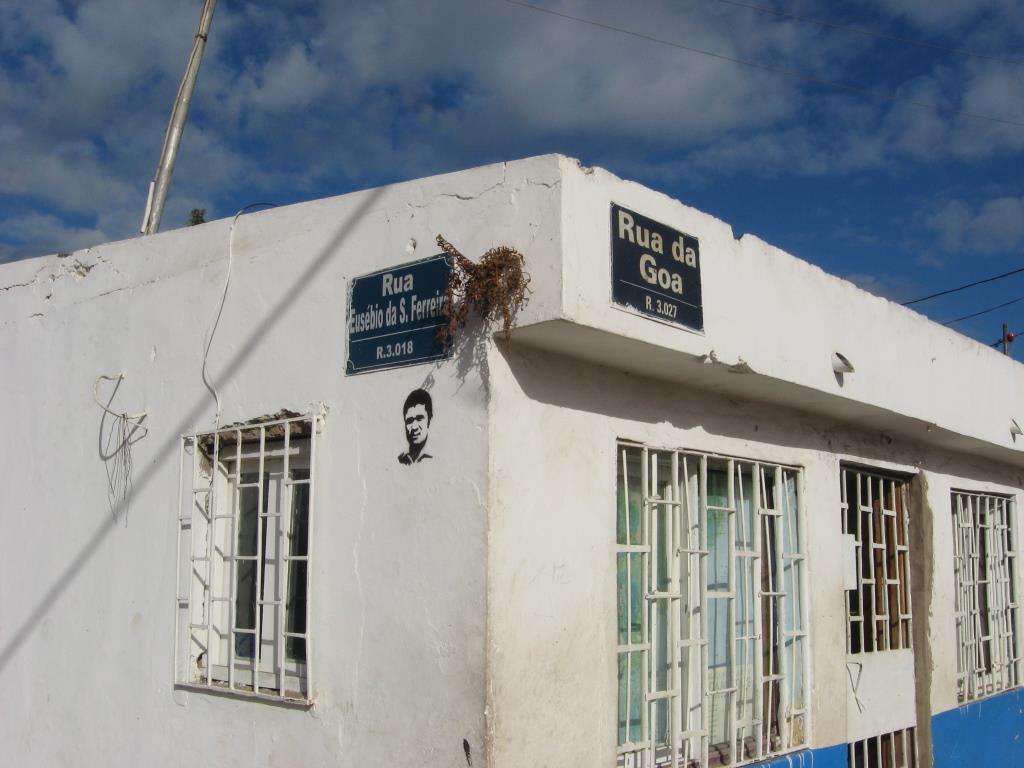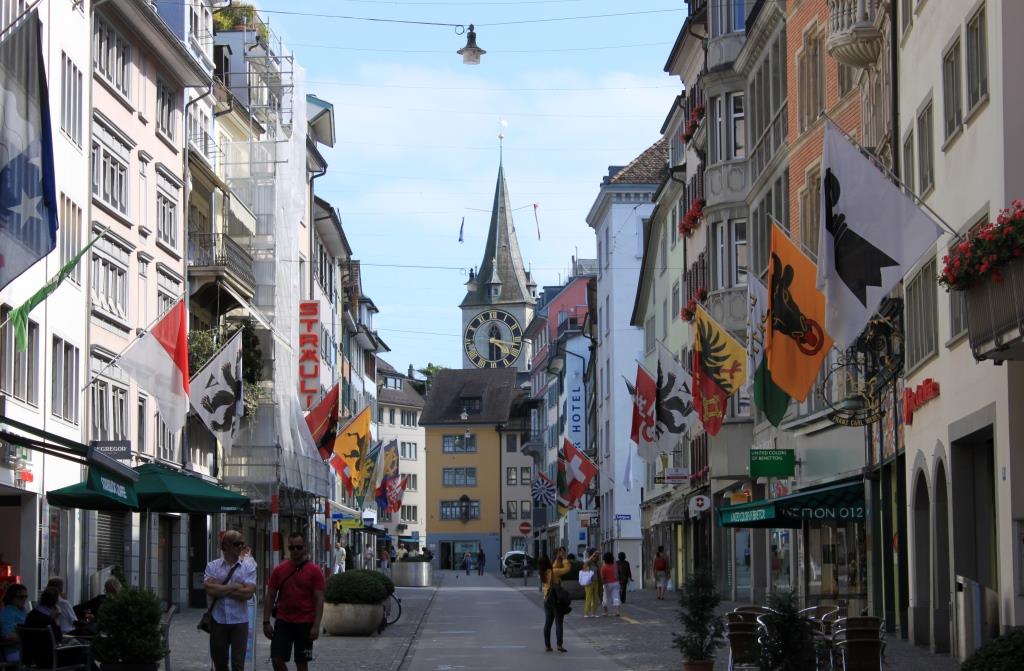Eusébio was one of the heroes of my childhood. Watching the 1966 Soccer World Cup in England on our neighbor’s black and white TV set in Switzerland, all we wanted to see is Eusébio. Eusébio was the dominant player of that tournament, Pelé notwithstanding, and led the Portuguese squad to the third place. We admired the elegance of his play, his speed, and his superb ball control. It is because of players like him that we call soccer the beautiful game. Eusébio died on January 5, 2014.
Eusébio, whose full name was Eusébio da Silva Ferreira, retired from soccer in Portugal in 1975 to play in North America, and I did not think about him much anymore after that. Until 2012, when I took a walking tour through Mafalala, a poor slum of Maputo, the capital city of Mozambique. As I walked across a gravel field, my guide told me that this is the place where Eusébio learned to play soccer and that Eusébio grew up in Mafalala. I was completely surprised–I always had thought of him as Portuguese, and the fact that he was black somehow went unnoticed during my childhood.
Eusébio’s biography is marked by the de-facto Apartheid regime Portugal had implemented in Mozambique at the tail end of Portugal’s global empire. It lasted more than half a millennium and only ended in 1975 when Mozambique became independent from Portugal. The center of Maputo, then called Lourenço Marques, was reserved for whites only. In the 1950s and 1960s, the Portuguese built a large number of concrete highrises along stately avenues in the center of Maputo for a substantial Portuguese population–this is why it is referred to as Concrete City sometimes.
Blacks were not allowed to live there and were relegated to slums without any modern infrastructure. Mafalala was adjacent to the city center and became the focus of black intellectual life during the final decades of the colonial regime. It also was the center of resistance against white rule, and many leaders of FRELIMO, the Marxist liberation movement that seized power after independence, lived in shacks in Mafalala.

Joaquim Chissano (b. 1939), the second president of Mozambique, used to live in the light blue house.
Eusébio moved to Lisbon in December 1960, at age 18, to play for Benfica. Sporting Lisbon, its cross-town rival, had first dibs on him as he played in their youth organization in Maputo. But Benfica outsmarted Sporting, and apparently they convinced Eusébio’s mother with a good bit of cash. Regardless the circumstances, for a kid from Mafalala to play for one of the major European clubs was a dream come true.
In Maputo, Eusébio was subjected to open racism imposed by the Portuguese colonial regime, but he was part of a majority community that gave him support. While the racism in Lisbon may have been less overt, he had no community in Lisbon. So soccer became his community–which he worked for until the end of his life. He remained an untiring soccer ambassador for both Portugal and Benfica, his club, until his death. When Sepp Blatter, the FIFA boss, in 2011 stated that black soccer players just should shrug off racism, thus causing a scandal, Eusébio essentially agreed.
But we know that his 15 years at Benfica were tough, in spite of the huge sportive successes. Portugal then was a fascist state, ruled by António de Oliveira Salazar (1889-1970) and his successor Marcelo Caetano (1906-1980), until the Carnation Revolution of 1974 swept away the dictatorship–which led to the independence of all Portuguese colonies in the following year. The established society always saw Eusébio as an inferior African, and Eusébio also endured racist attitudes at Benfica. But he never talked publicly about his experience with racism–in spite of the fact that he agreed to be ambassador against racism for FIFPro, the global association of soccer players.
His pay at Benifica was far below of what top players elsewhere in Europe earned. Clubs like Inter Milan were interested in him, but Benfica demanded unreasonable amounts of money to release him. Apparently, Eusébio personally appealed to Salazar the dictator to get permission to leave. But Salazar denied the request with the justification that Eusébio belonged to the Portuguese people. Dictators are lousy at understanding irony. And by the time the regime fell, he was 35 and no longer of interest to top European teams.
Eusébio’s biography has a lot more layers of complexity than I possibly could have suspected as kid who admired him. As a victim of a brutal colonial regime, he moved to the racist “motherland” and sought his fortunes there. He never moved back to his native Mozambique where he was admired as a national hero, although he visited often.
It appears that the issue of race was like a festering wound to him–a topic he never wanted to discuss publicly. Donald McRae in a 2006 piece in The Guardian describes Eusébio as a conflicted individual who was haunted by the ghosts of his past and struggled with issues of identity and belonging. Apartheid and the Portuguese colonial rule are gone, but their impacts on lives are real and ongoing. Eusébio is exhibit A. In its obituary, The Guardian writes: “Eusébio was the greatest African footballer in the history of the game.” While this is true, I would have never thought of it this way. The story is more complicated than that.



